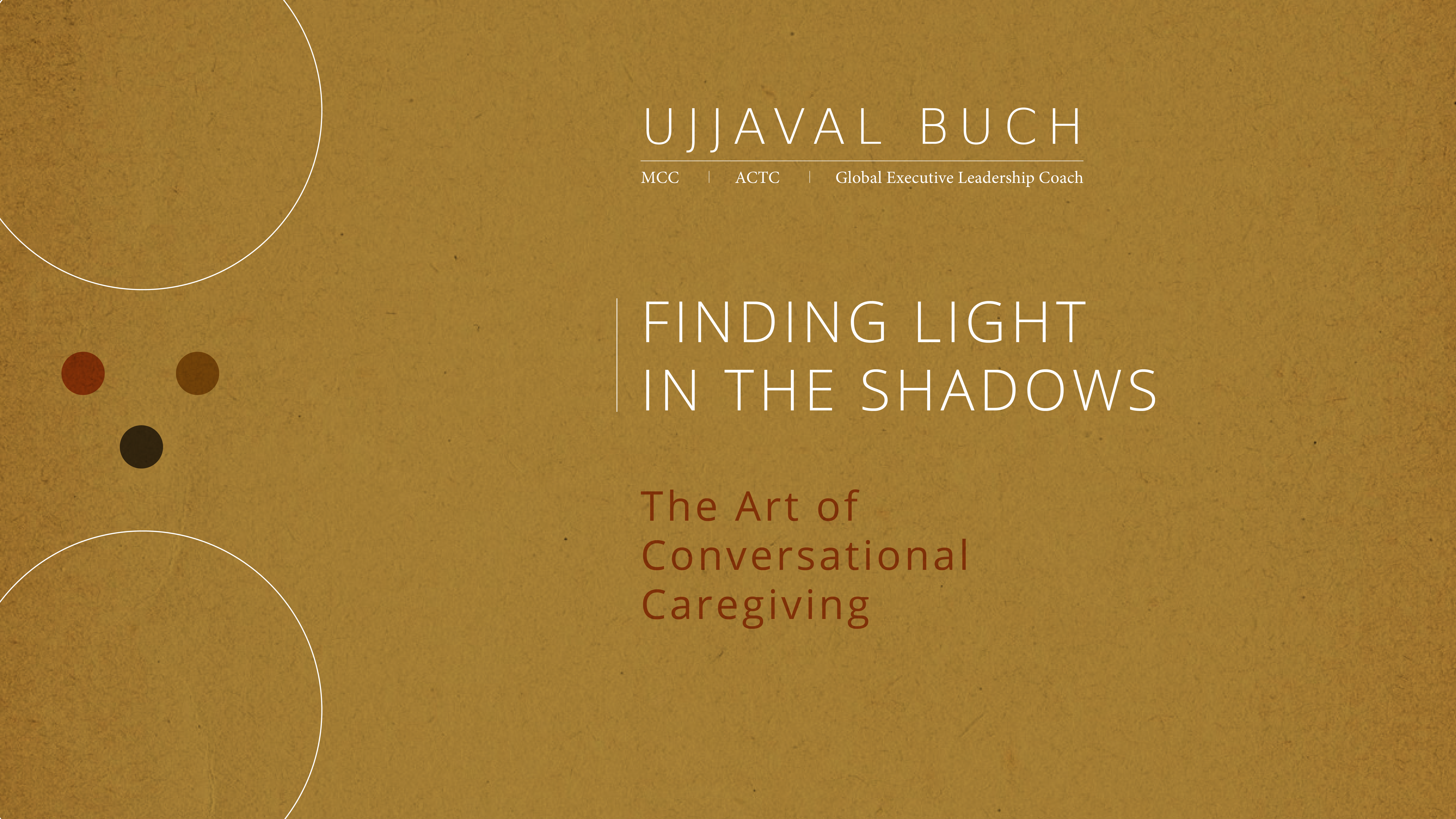When you read this word – conversational care giving, what comes to your mind? Just pause and reflect for a moment. One of the definitions suggest that a caregiver is a person who provides direct care to the other person who is in need of receiving. Caregiver word is neurally associated with someone who is ill or specially abled needs care.
These days we’re surrounded by a lot of people who appear to be ‘okay’ from the outside but they might be ‘broken’ from the inside and, unless you’re aware of the subtle cues, mostly non-verbal they go undetected. It’s like looking at a photograph doesn’t tell anything about the illness which X-ray film would indicate.
My job as a coach like thousands of other coaches and helping professionals involves working with the inner dynamics of people and when they let us enter into their inner world, I see the pot of gold and pot of stones..however the client only looks at the pot of stones and they feel weighed down by the same. They carry regret of the past, feeling of guilt, shame and other difficult emotions in that pot. This can be dealt with through the process of acceptance, forgiveness and healing as the case may be. However, here is something that I find in that pot of stones – a feeling of anticipatory grief. This feeling is not discussed very often. Let’s double click.
Anticipatory grief is a feeling that occurs in anticipation of losing something/someone permanently in the future. If it is related to any person, that is understandable, however I was surprised when I found people losing faith in their future – goals, dreams, progress. They somehow ‘believe’ that they won’t get to the future milestones and with that ‘booking’ of loss, they stop taking actions in the present moment. They just float rudderless. In that process, they suffer silently and ‘shut themselves down’. Those people might be in your immediate family, extended family, friends, in your professional or personal circle.
At the cost of exaggeration, I can say that this could be a silent epidemic. How to deal with them. Enter conversational caregiving. I have found that if they find you possessing these qualities, they open up – this is critically important.
- If you’re a safe sounding board – a feeling that you’ll keep the discussion confidential
- If you’re non-judgmental, A feeling that someone would judge me is a big boulder that prevents opening up of mind.
- If you’re just a good holder of space..not into advising, guiding and mentoring unless asked for.
Read these qualities one again. They don’t require you to ‘do’ anything. Just be. Conversational caregiving is just that. Here’s what you can consider:
- Look for subtle non-verbal cues and offer that you’re available for a conversation, a gentle offer and leave it for the other person to decide to connect back.
- Start with observations, not judgements.You could say that I saw these expressions on your face and just felt like checking-in with you, if there’s something going on inside you and you need to talk to someone, here I am. Not to say that I found you angry or confused or depressed so let me know what’s going on.
- When they open up, just listen, listen and listen. Pl refer to one of the finest resources on listening below.
- Offer what they would like to do? Most of the time, they would ‘not like to do anything’ immediately, they just would like someone to listen.
They would like to empty themselves. What are they emptying? They are emptying their pot of stones..once that is emptied, almost every time, they can ‘see’ the pot of gold inside themselves..their strengths and capability to reimagine the future and with that, they realize that the future is not lost, they can still grab it. Sometimes it happens in one conversation, sometimes a few more.
This is the primer on conversational caregiving. You have what it takes to be a conversational care giver. Just need to refocus and look for those who may need it. And when you do that, just check on the feeling of satisfaction, fulfillment and your sleep quality that night. Everything starts changing inside you as well. As Dr. Srikumar Rao says, when we work on others, we actually work on ourselves.
In summary, when you are a conversational care giver, you enhance self-care, self-cleansing and in the process, you not only discover but also expand your pot of gold!
Thank you for your time in reading as well as reflecting.
Do let us know what you think and feel about this topic.


